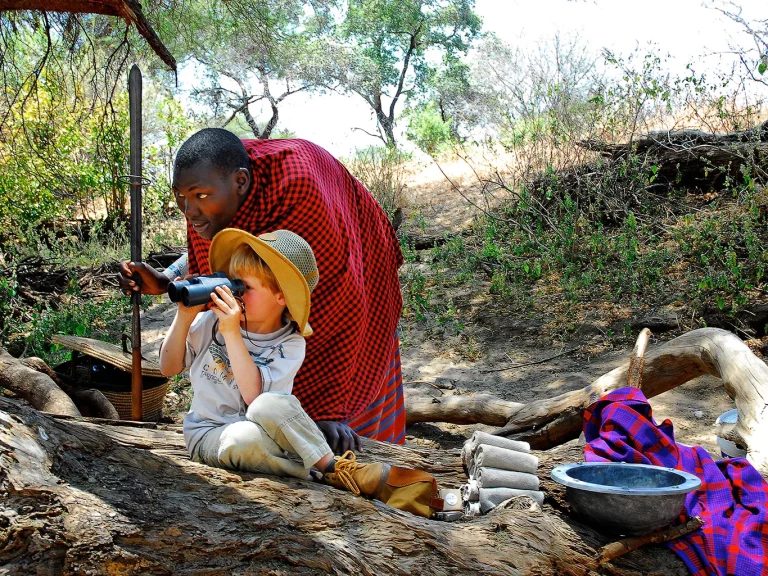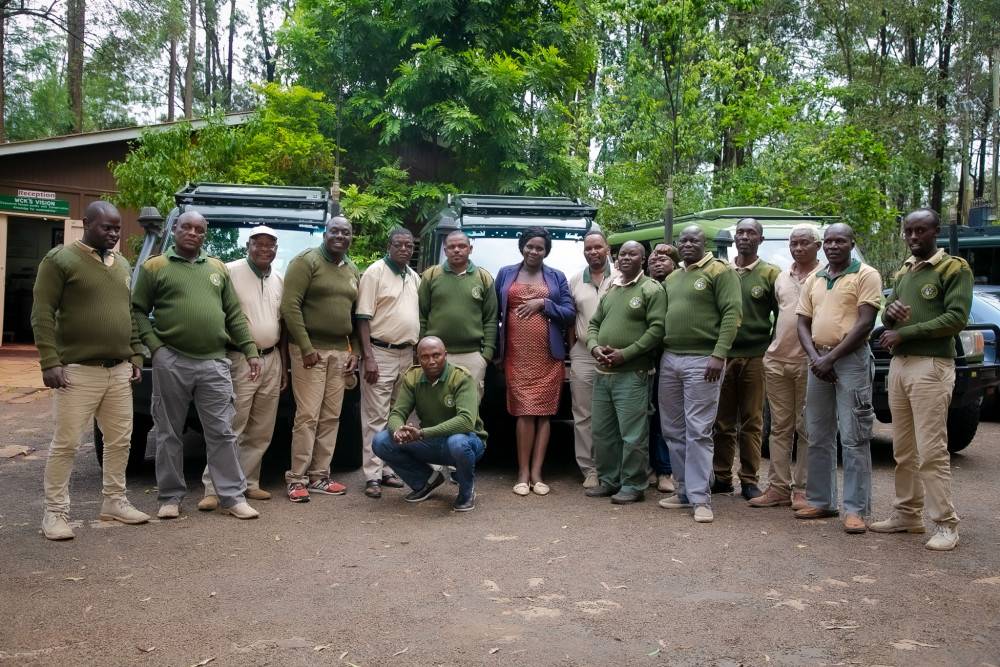To ensure that you have an enjoyable and safe trip in Mombasa Kenya, it is important to take the essential precautions to protect your health. Here are a few important health considerations.
1. Vaccinations
Routine Vaccinations: Ensure that you are up-to-date on routine vaccines such as measles-mumps-rubella (MMR), diphtheria-tetanus-pertussis, varicella (chickenpox), polio, and your yearly flu shot.
Hepatitis A is advised for all travelers due to the risk that food and water may be contaminated.
Hepatitis B (Hepatitis B) It is recommended for people who might have been exposed to bodily fluids or blood, e.g. through sexual or medical contact.
The vaccination against typhoid is recommended for anyone traveling, but especially for those traveling to rural or small regions, staying with relatives, or eating in unfamiliar areas.
Yellow Fever: A certificate of vaccination may be required for those who are traveling from countries at threat of transmission of yellow fever. Make sure to check the most up-to-date guidelines.
Rabies: A must-have for anyone engaged with outdoor activities that place them at risk of bites, including hiking, camping or caving.
2. Malaria Prevention
Antimalarial Medication: Mombasa is a malaria-endemic area. Talk to your physician about the best antimalarial medication for you.
Utilize insect repellents made of DEET, long sleeves, long pants and a mosquito net to avoid bites from mosquitoes, especially at night.
3. Food and Water Safety
Be safe when drinking water Use only bottled or boiled boiled water. Avoid tap water, ice cubes as well as drinks that aren't sealed.
Make sure to eat well-cooked meals. Avoid eating meat that is raw, undercooked, or seafood. Avoid vegetables and fruits that have not been washed. Be wary of street food and choose reliable dining establishments.
4. Diarrhoea as a result of travel
Hand Sanitizer or washing your hands with soap and hot water is a great way to ensure you are maintaining a healthy hand hygiene. Beware of drinking and eating food from questionable sources.
Meds: Carry medicines such as the loperamide (Imodium) and oral Rehydration salts. In the case of severe instances, you might need consult your physician.
5. Sun Protection
Sunscreen: Apply sunscreens that have a SPF of 30 or more. Reapply often, especially after sweating or swimming.
Wear sunglasses and hats to protect yourself from sunlight. Also, don't forget to wear light, long sleeved clothes.
6. Heat and Hydration
Stay hydrated. Drink plenty of fluids, especially water to avoid dehydration. Avoid excessive alcohol and caffeine as they can lead to dehydration.
Beware of overexerting yourself. Make breaks during most hot times of the day. To avoid heatstroke and heat exhaustion, find shade and cool areas.
7. Water Sports: Safety and Security
Swimming in Areas Delineated: Make note of the local advice and the swimming conditions as well as any potential risks, such as a strong current.
Marine Life Awareness - Be aware of and stay clear of harmful marine life such as Sea Urchins and jellyfish. Wear water shoes when walking in shallow waters.
8. Care and Insurance. Care and Insurance
Travel Insurance - Ensure you have insurance coverage to cover any medical emergencies including evacuation.
Local Medical Facilities: Get to know your local medical facilities. Many hotels offer details about nearby medical facilities and hospitals.
Meds: Ensure you have enough of any prescription medication that you take along with copies your prescriptions.
9. Emergency Contacts
Contact the Embassy of your country to obtain the contact information for them.
Local Emergency Numbers: Get familiar with the local emergency numbers, including police (999), fire (999), and ambulance (999).
Follow these steps and you will be in a position to enjoy your Mombasa holiday. Follow the most popular kenya tours and safaris Wasini Watamu for blog info including mombasa travel agency, mombasa safaris kenya, kenya tour operator, tour company, safari excursions, tour firms in kenya, travel tours in kenya, trips to kenya safari, kenya safari and beach, mombasa safari packages and more.

What Are The Culture Sensitivity Issues That I Should Be Aware Of When On Holiday In Mombasa Kenya?
It is essential to respect local culture when traveling to Mombasa. This will make you to enjoy your trip more. Here are some important things to consider:
1. Please adhere to local dress codes.
Mombasa is home to a large Muslim population. Dress modestly when you are in public spaces, the mosque or even your local neighborhood. This includes wearing a dress that covers your shoulders, chest and knees.
Beachwear. While it's acceptable to wear swimwear on the beach however, it is recommended to protect your skin while leaving the area and visiting nearby eateries or shops.
2. Religious Sensitivity
Going to Mosques: If you want to go to a mosque, make sure you have permission first, and dress appropriately. Hairdressers should cover their heads and take off shoes.
Be aware of the times for prayer. Particularly if there's a mosque close by, be mindful and considerate.
3. Photography Etiquette
Permission: Ask permission before taking pictures of people who live in traditional or rural environments. Certain people may feel uneasy, or believe it's intrusive.
Restricted areas: Don't take photos in sensitive areas, such as military installations, government buildings or other cultural sites where photography is forbidden.
4. Social Interactions
It's essential to greet your fellow citizens with respect. Swahili greetings consist of "Jambo". For Muslim women, it's appropriate to wait until they have extended their hands before they greet or to salute with a verbal greeting.
Respect your privacy. Be careful of any physical contact.
5. Cultural Taboos and Cultural Norms
Beware of public displays of affection. They are generally looked at.
Left Hand Use According to tradition, the left hand is not considered clean. It is recommended to use your right hand to eat or greet others, as well as to trade goods or money.
Feet: It's thought to be disrespectful to point your feet in their direction or point them at them.
6. Language and Communication
Basic Swahili Basic Swahili Swahili phrases can help you build relationships and show respect to the locals. The most commonly used phrases are "Asante" (Thank you) and "Habari" (How are you? ).
Politeness: Use patience and politeness in your communications. Kenyans are respectful and courteous when they interact with others.
7. Be respectful of local Customs
Be respectful of the customs and customs. Follow your host's instructions if you're invited to attend an event in the local area.
Bargaining: In markets and local stores, bargaining is common. Be sure to bargain with respect and good humor. It's a custom of the community not an aggressive one.
8. Alcohol and Smoking
Alcohol is readily available, however it is best to drink it in a discreet manner in areas where Muslims are the predominant religion. Avoid public intoxication.
Smoking: Smoking is typically prohibited in public areas. There are designated smoking areas.
9. Environmental Respect
Beware of littering: Don't litter and be mindful of disposing of waste properly. Respect nature, wildlife and all other animals.
Conservation: Respect the local wildlife, habitats, and conservation efforts. Avoid purchasing products made with endangered species.
10. Supporting Local Communities
Local Businesses: Support local artisans, businesses and markets to help boost the local economy.
Responsible Tourism - Select sustainable options and local tourism to benefit the local people.
You can enhance your appreciation of your local culture by observing these guidelines for cultural sensitivity. Take a look at the recommended mombasa safari tours for blog tips including kenya safaris, african safari excursions, kenya travel packages, trips to kenya africa, kenya safari and beach packages, kenya safari and beach, safari mombasa kenya, safari trips in kenya, africa in kenya, kenya safari tours and more.

What Environmental Responsibilities Do I Have To Be Aware Of When I Am What Environmental Responsibilities Should I Be Aware Of When Traveling Mombasa, Kenya?
To protect the natural beauty and variety of Mombasa in Kenya it is crucial to be environmentally conscious. Here are a few important environmental responsibilities to consider:
1. Sustainable Accommodation
Eco-friendly Hotels: Choose hotels that are committed to sustainability. Check for certifications such as Eco-Tourism Kenya, or other eco-labels.
Join hotel initiatives that conserve water and energy. Reuse towels and linens Turn off lighting and air conditioning when they are not being used.
2. Responsible Conservation of Wildlife
Respect wildlife. Be careful not to disturb animals by ensuring an area of safety between you and them. Follow the directions given by your guide.
Don't feed animals. This can cause them to change their normal diet and behaviour.
Don't litter in wildlife reserves. Bring all garbage with you and dispose of it in a proper manner.
3. Plastic Reduction
Reduce your use of plastics by avoiding single-use plastics. Keep a water bottle in your bag, reusable bag, and tools.
Participate in local initiatives Participate in beach cleanups, and aid groups that help reduce the impact of plastics on the environment.
4. Water Conservation
Use Water Wisely: Mombasa experiences water scarcity problems. Take shorter showers and turn off the water when it is not being used.
Eco-Friendly products: Use biodegradable or eco-friendly toiletries to reduce water contamination.
5. Energy Conservation
Reduce Energy Consumption: Limit the usage of air conditioners and disconnect devices that aren't being used.
Support Renewable Energy Find hotels and tour operators who use renewable sources of energy.
6. Sustainable Transportation
Public Transport: If you can, minimize your carbon footprint by using public transportation like buses and matatus.
Consider using bicycles to travel short distances. Some areas have eco-friendly tuk Tuks.
7. Helping to support local economies
Buy Local: Purchase items such as souvenirs, crafts and meals locally, to help local businesses.
Fair Trade - Choose fair trade items to be sure local producers receive an equitable price.
8. Environmental Education
Learn and share. Learn more about the local environmental issues and conservation efforts. You can share what you've learned in order to increase awareness.
Respect Local Cultural Practices Respect and learn local customs and practices in the field of environmental conservation.
9. Marine Conservation
Responsible Snorkeling and diving: Avoid touching or walking on coral reefs. Use sunscreen that is reef-safe to ensure the safety of marine life.
Don't throw waste in the ocean. Participate in programs to protect marine life or help in the process.
10. Ethical Souvenirs
Beware of Wildlife Products. Don't buy products from endangered species. Examples include ivory and tortoiseshell.
Sustainable Materials: Choose items made of recycled materials or sustainably produced.
11. Take part in conservation efforts
Volunteer: You can consider participating in local conservation projects or community-based tourism initiatives.
Support local NGOs. Donate money to NGOs or conservation organizations that are working to protect and preserve the natural environment.
12. Responsible Travel Policies
Group travel is a great way to reduce environmental impact.
Eco-Tours Select tour operators that have sustainable policies and a dedication to sustainability.
Be sure to keep these environmental concerns at the forefront of your thoughts to protect Mombasa's natural resources. Check out the most popular island snorkeling in mombasa for blog info including kenya beach mombasa, kenya safari and beach, kenya safari holiday, kenya africa travel, kenya tours and travel, cheap kenya safari packages, africa tours and safaris, tour firms in kenya, tour firms in kenya, tour company and more.
